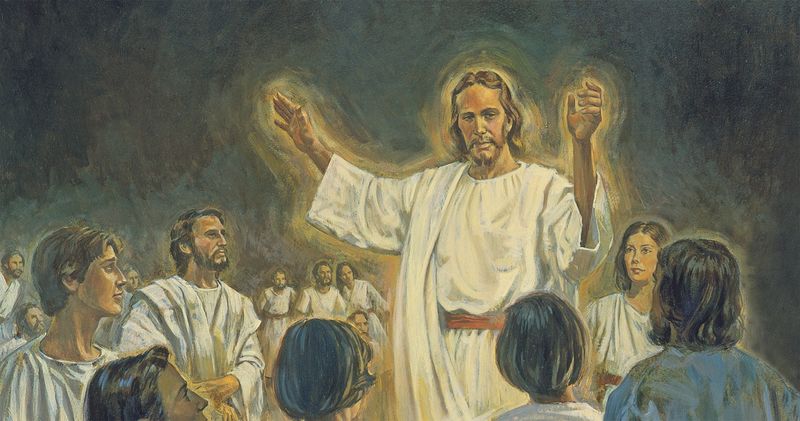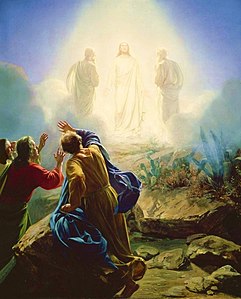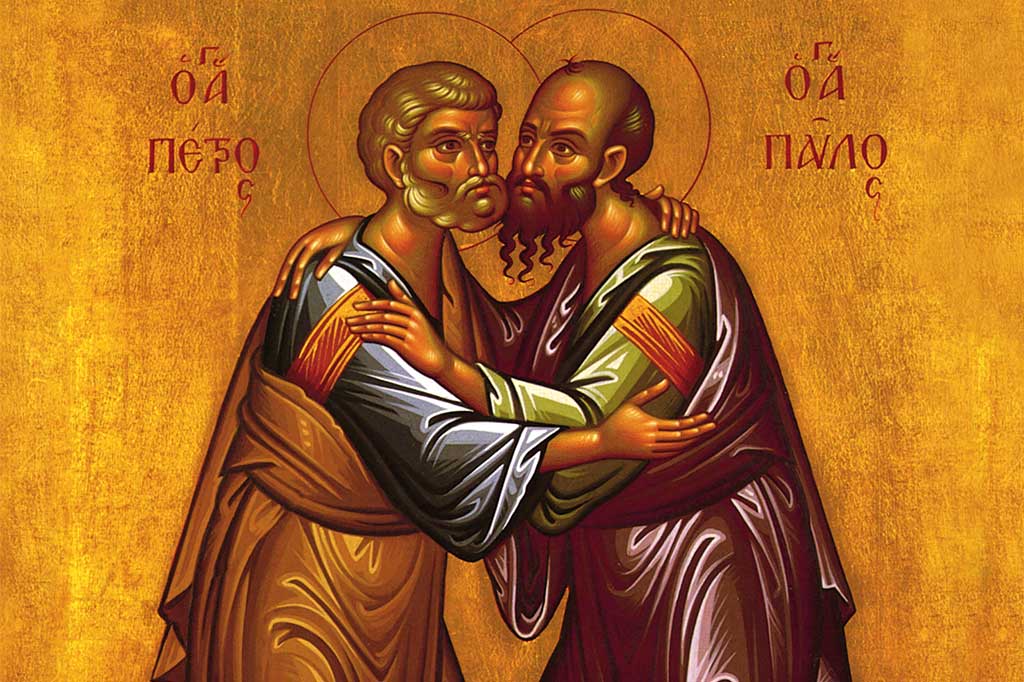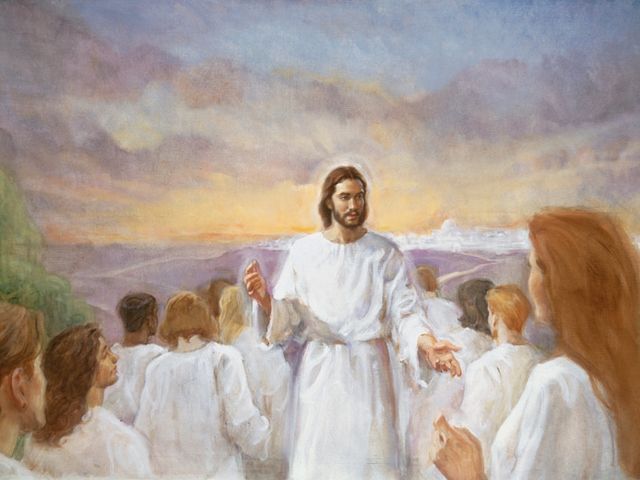To accompany your Come Follow Me study for November 20-26
In addition to reading the indicated chapters, you may wish to:
Read the applicable portion of the New Testament Institute Student Manual at :
See the following videos:
If you would like a Kahoot game related to this material which you could use for personal study or use with your family or your class, click here: https://create.kahoot.it/share/1-and-2-peter/09dbba6c-3f86-4bfc-8653-0e9ded84f0dc . (To use it with a group, after clicking on this link, you will need to log into Kahoot, creating a free account if you have not done so previously, then click on the blue “Start” button.)
Points to Ponder in 1 and 2 Peter
Let’s do with 1 and 2 Peter what we did with the book of James and look for (1) passages which you feel would be useful in missionary work, including establishing distinctive Latter-day Saint doctrines, (2) those which you personally find inspiring or motivational, and (3) those which you feel especially need some clarification in order to prevent misunderstanding.
USEFUL IN MISSIONARY WORK
1.
2.
3.
4.
5.
INSPIRING AND MOTIVATIONAL
1.
2.
3.
4.
5.
POSSIBLY MISUNDERSTOOD WITHOUT CLARIFICATION
1.
2.
3.
4.
5.
Possible Answers to Points to Ponder in 1 and 2 Peter
USEFUL IN MISSIONARY WORK
Here is my list. Yours may differ.
1. 1 Peter 1:20: Christ was foreordained before the foundation of the world to be our Savior, implying that the fall of Adam and Eve was no surprise to God but was part of His plan for the eternal happiness of all mankind.
2. 1 Peter 1:23: Peter emphasizes the importance of being “born again,” which we learn elsewhere includes repentance, baptism, and reception of the Holy Ghost.
3. 1 Peter 3:8—Men and women are heirs together of the grace of life, highlighting not only the importance of marriage but implying that it was destined by God to be eternal.

4. 1 Peter 3:18-20; 4:6: These may be our clearest biblical passages about Christ’s preaching to the “spirits in prison” during the time between His death and His resurrection, that those who didn’t hear or didn’t accept His gospel during their lifetimes might have the same opportunity we have.

5. How to deal with opponents of the Church:
- 1 Peter 3:8-9: Be courteous, not returning railing for railing.
- 1 Peter 3:15: Peter says we should be ready always to give an answer to those who ask about our faith. He implies that not only should we be prepared with good gospel knowledge but by living to have the Holy Ghost with us, having “sanctified the Lord God in our hearts.”
6. 2 Peter 1:21: Just as prophets of old spoke as they were moved by the Holy Ghost, so is it reasonable that modern prophets would do the same.
7. 2 Peter 2:1-2: A good description of the Great Apostasy, which preceded the latter-day restoration of the gospel.
INSPIRING AND MOTIVATIONAL
The following is my list. Your own may, and should, be different.
1. 1 Peter 2:9: I love Peter’s assurance that we are a “chosen generation, a royal priesthood, an holy nation.” See my comments in the next section concerning the “peculiar people” reference, which is often misunderstood.
2. 1 Peter 2:13-14, 17; 2 Peter 2:10: We are to obey the law of the land, not just God’s law, and we are to speak respectfully of our leaders, whether or not we voted for them or agree with them.
3. 1 Peter 2:21: Christ set an example for us, that we should “follow his steps.” Asking ourselves, “What would Jesus do,” will keep us out of a lot of trouble.

4. 1 Peter 4:7 and 5:8: “Be sober.” We can be cheerful and enjoy life, but we also need to be serious about it.
5. 1 Peter 4:12-13: I love Peter’s optimism and promise that if we are faithful in partaking of Christ’s sufferings, we will in the end “be glad also with exceeding joy.”
6. 1 Peter 5:2-5: We are to “feed the flock of God” not as their superiors but by example and with humility. We are to “be subject one to another,” whether in a family setting or in the church.

7. 1 Peter 5:8: A reminder that the devil is real, is our adversary, and that we must be watchful to avoid being spiritually devoured.

8. 2 Peter 2:20-21: An important reminder that it would be better never to be baptized than to leave the faith after having once accepted it.
9. 2 Peter 3:3-6: A reminder to those who think our leaders have been talking about the Second Coming forever and that it likely will never happen. The people in Noah’s day thought the same thing, until the Flood came.

10. 2 Peter 3:11: An eloquent reminder that in view of the great things soon to happen upon the earth, “what manner of persons ought [we] to be in all holy conversation [conduct] and godlinesss”!
POSSIBLY MISUNDERSTOOD WITHOUT CLARIFICATION
1. 1 Peter 2:2: Why would Peter encourage his readers “as newborn babes, [to] desire the sincere milk of the word,” when Paul urged his readers in Hebrews 6:1 to leave the “principles,” or elementary teachings, of the doctrine of Christ and go on unto perfection?
Presumably because Peter was writing to those new to the faith, who needed to be well grounded in the basic principles before worrying about more complicated doctrines, whereas Paul was writing to those who had more time in the Church since their conversion and were ready to move on to a deeper understanding of gospel truths.

2. 1 Peter 2:9: Why does Peter tell his readers they were supposed to be “peculiar,” or weird?
The word translated as “peculiar” in the King James Version comes from the Greek “peripoiesis,” meaning a “possession,” or “one’s own property. Most New Testament translators rendered “peculiar people” as something like “God’s special possession.” (NIV) It has nothing to do with being weird but everything to do with our realizing we belong to God and He considers us His special treasure.
3. 1 Peter 3:1: What does Peter mean that unbelieving husbands could “be won by the conversation of the wives”? Is he saying that if believing wives will just talk nicely or persistently enough to their husbands, the husbands will finally give in?
Peter uses the word translated as “conversation” repeatedly in his epistles. The meaning of the word has changed markedly over the past 400 years. In every case, he means “conduct,” not talking. A good wife’s example is much more likely to change her husband than her nagging.

4. 1 Peter 3:8: Are Christians really supposed to be “pitiful” creatures? What does Peter mean here?
By “pitiful,” he means “full of pity,” not “the object of pity.”

5. 1 Peter 4:8: Can you think of at least four possible legitimate ways of handling Peter’s declaration that “charity shall cover the multitude of sins”? Which do you prefer, and why?

a. It could plausibly mean that if one has charity, he will tend to overlook the sins or offenses of others. This is the approach taken by the translators of the Amplified Bible, the Easy-to-Read Version, the International Children’s Bible, the New Century Version, and the New International Reader’s Version.
b. It could conceivably mean that if we have charity, it will make up for (or cover) many, if not all, of our own sins. The translators of the Common English Bible, The Living Bible, and The Message all took this approach.
c. Its meaning could be so ambiguous that it would be best to leave it as it is, so that each reader can make his own interpretation. That is what most translators have done, including the translators of the King James Version, The New International Version, The New Living Translation, The New English Bible, and many others.
d. It could mean that charity covers our own sins preemptively, meaning if we truly love God and others, we won’t commit sins against them. Joseph Smith felt this was the best approach, and in his Joseph Smith Translation, he worded it, “for charity preventeth a multitude of sins.” My own guess is that Peter probably meant “a,” above. But Joseph Smith may have sensed that too many might have chosen “b,” thinking it meant that if one just “loves” enough, he can get away with almost anything. So, I applaud his inspired change of the verse to unambiguously teach that love will keep us from sinning, whether or not that is what Peter meant originally.
6. Why would judgment “begin at the house of God”? (1 Peter 4:17.) Where else does the Lord talk about this subject?
Though there is no related footnote at 1 Peter 4:17, D&C 112:24-26 does provide a reference back to Peter’s statement. The D&C passage warns of vengeance to come speedily upon the earth, “a day of wrath, a day of burning, a day of desolation, of weeping, of mourning, and of lamentation…, and upon my house shall it begin, and from my house shall it go forth, saith the Lord; First among those among you, saith the Lord, who have professed to know my name and have not known me, and have blasphemed against me in the midst of my house.” This seems to be in keeping with the principle of D&C 82:3, that “of him unto whom much is given much is required; and he who sins against the greater light shall receive the greater condemnation.” D&C 41:1 similarly promises the saints “the greatest of all blessings,” but threatens those who have professed God’s name but have not followed Him “with the heaviest of all cursings.” So, it appears that not only will apostate or unfaithful saints be judged the most harshly, but in some sense they will be judged first.
7. To what spectacular event is Peter referring in 2 Peter 1:16-19?
The Transfiguration, as recorded in Matthew 17.

8. 2 Peter 3:15-16: How did Peter feel about Paul and his writings?
Peter clearly loved Paul, calling him “our beloved brother.” And he loved his epistles, coming from “the wisdom given unto him.” But he acknowledged that there were some things in Paul’s writings which were hard to understand. That should be comforting to those of us who wondered if we were just dense as we tried to digest what Paul was saying. But Peter concludes with a warning against “wresting” Paul’s writings to our own destruction.

9. 2 Peter 1:5-8: Why is it not particularly helpful to think of these several virtues as being in order of importance or in the order in which they should be developed?
Though we sometimes see these diagrammed as steps on an upward ladder, I prefer the approach of Elder Robert D. Hales, who taught: “The attributes of the Savior, as we perceive them, are not a script to be followed or list to be checked off. They are interwoven characteristics, added one to another, which develop in us in interactive ways. In other words, we cannot obtain one Christlike characteristic without also obtaining and influencing others. As one characteristic becomes strong, so do many more” (“Becoming a Disciple of Our Lord Jesus Christ,” 46).

10. 2 Peter 1:10: What do we need to know about making our calling and election sure?
I personally like the emphasis given by Elder Bruce R. McConkie at the funeral services of Elder S. Dilworth Young. He there said:
“If we die in the faith, that is the same thing as saying that our calling and election has been made sure and that we will go on to eternal reward hereafter. As far as faithful members of the church are concerned, they have charted a course leading to eternal life. This life is the time that is appointed as a probationary estate for men to prepare to meet God, and as far as faithful people are concerned, if they are in line of their duty, if they are doing what they ought to do, although they may not have been perfect in this sphere, their probation is ended. Now there will be some probation for some other people hereafter. But for the faithful Saints of God, now is the time and the day, and their probation is ended with their death, and they will not thereafter depart from the path. It is true as the Prophet Joseph Smith said, that there are many things that have to be done “even beyond the grave” to work out our salvation, but we’ll stay in the course and we will not alter from it, if we have been true and faithful in this life.”
Additionally, we might point out that as Paul emphasized in Hebrews 11, it is our right to receive through personal revelation a witness from God that the course of our life is and has been pleasing to Him. If we are feeling God’s presence through the Holy Ghost, with its accompanying feelings of peace, joy, and love, we can rest assured that we are on the right path and that if we continue, we will in due time find our calling and election has been made sure.
